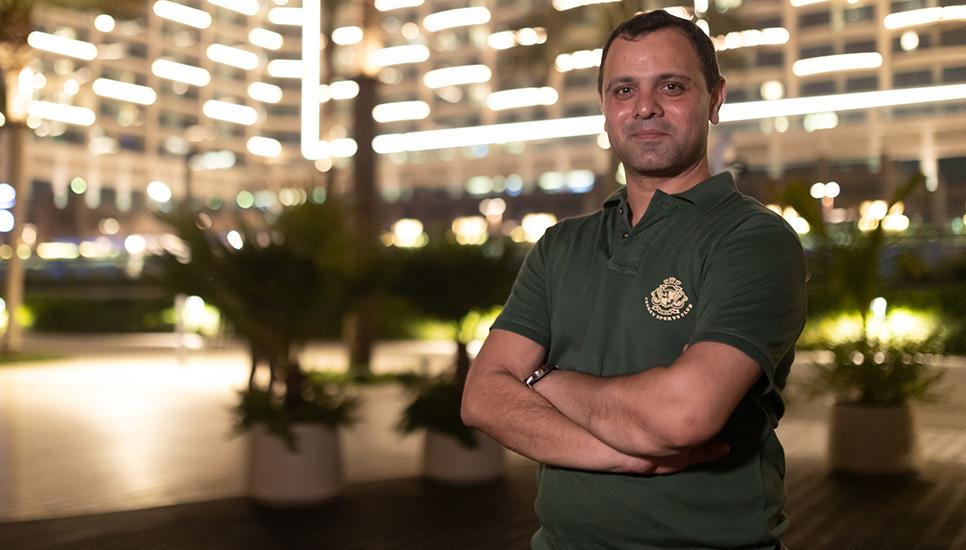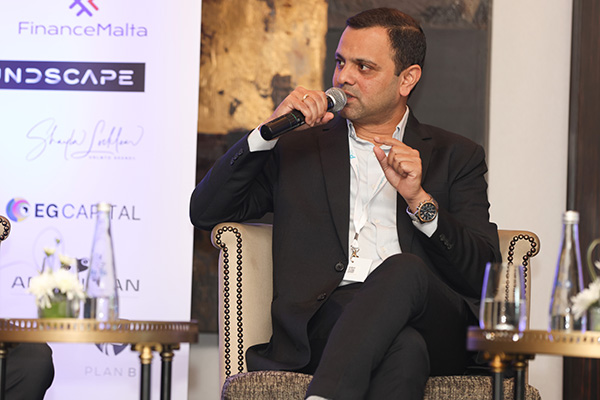The rise of family offices in the ‘land of unicorns’

As head of global investments at Thermax Family Office (spun out of the innovative environmental engineering and manufacturing company, based out of Pune, India), Amol Sathe has the honour of working with one of the oldest and most established private family offices in India.
Since joining in the early 2010s and subsequently becoming an integral part of the core team that led the Thermax Family Office on its journey to create a global presence, Amol Sathe has been a witness to the extraordinary rise of Indian family office ecosystem.
A certified financial planner and holder of a certificate in International Trust Management conferred by STEP and the University of Manchester, he has also actively participated in domestic and overseas succession and estate planning projects.
Here, Amol Sathe talks about a time of incredible growth and prosperity, and how Indian families are adjusting…

Can you talk a little about the Thermax Family Office, how did it get from ‘there’ to ‘here’?
In India, the family office industry is pretty young as compared to the west. Our Family Office was established in 1999, making it now one of the oldest in the country, when our CEO was introduced to the promoter Family by the-then auditors of Thermax Limited to take care of the family’s personal taxation and related areas.
When he started with their taxation, he also realised their investments could improve a lot in terms of structure and management. So, he said, ‘Why not structure this as well?’. And that's how the family office was born. It was established when there was no real concept of family offices in India - the industry, as it is flourishing now, was pretty much non-existent then.
2002 saw the introduction of asset allocation in the family office, which was again a new concept. In 2006, the first overseas remittance was made through the liberalized remittance scheme (LRS) from the Reserve Bank of India (RBI), which allows resident Indians to send out a certain amount of money without any prior approval. The LRS limit at that point was $25,000 per person, per year, so it was actually a miniscule window, but that was the first gateway for us to dip our toes into the global market.
The family is very clear - the single family office is the legacy and the legacy will always take precedence.
2009 was a time when we felt the need to do the restructuring of the promoters’ holding of Thermax Ltd. There were three holding companies of Thermax limited and we amalgamated them into one holding company, thereby streamlining the Promoters’ holding. Around 2014, we did the succession planning for the Thermax Promoter family and then, in 2015-16, we did the estate planning of their private wealth, this was also around the same time that we setup our first overseas arm of the single family office in Dubai.
Since 2010, we had also created portfolios in Zurich and London and, when Singapore laid down the red carpet for family offices, we shifted our Dubai setup to Singapore in 2019. Today, we have a full-fledged Singapore setup under which we are consolidating all our overseas investments. I joined the family office in 2012 and have been an integral part of the family office’s major evolution and sophistication ever since.
Because Thermax is still an ongoing operating business and 62% of the company is owned by the promoter family, we get substantial dividend inflows every year and this helps us to grow the portfolio further. By 2022, we were also getting a lot of queries seeking guidance on various aspects of managing a family office, such as investments, succession planning and overseas remittances. Through my network, these new family offices wanted to understand the experience of the more established family offices. So, we set up a structure to advise other families on a professional basis. I am currently a Managing Partner of this Advisory entity. I am still very much the CIO of the single family office, but this entity was created to keep things separate. The family is very clear - the single family office is the legacy and the legacy will always take precedence.
Since the turn of the millennium, Asia-Pacific has witnessed an eruption in the rise of family offices, can you talk about the growth in India in particular and what industries/wealth creation has driven that growth?
The overriding driving force in my opinion is the liquidity that has come into India. Now, that liquidity is either flowing into Indian capital markets, by way of foreign portfolio investments or foreign institutional investment, or it is coming as a strategic investment into Indian companies.
Many Indian entrepreneurs are either selling their businesses or diluting, by way of an initial public offering (IPO) for example. Many founders are of a mind that ‘I have built this company over decades and now I want to take some money off the table’.
The traditional Indian mindset has always been that ‘my business is my baby’. They used to take salaries to have a standard of living, but all the dividends were reinvested in the business as a growth cavitate. So, for many business owners, they may have a company worth $200 million, but what they have in their personal name is not much because they don’t usually take that money out.
Now many of those owners have recently gone ahead with partial exits, while retaining a controlling share in the business. Some have sold off their businesses entirely. As a result, they’ve suddenly come into money, and they don’t know what to do with it because they had never been money managers. So, now they understand the need for external professionals to establish and manage their family office.
Fintech has become a huge wealth creation area in India. There have been a lot of FinTech unicorns over the past few years… now we have become the land of unicorns! So, many of these unicorn founders have encashed some of the value their companies have created. Whatever their profitability may be, the fact is that they are able to liquidate or dilute at a very high valuation, thanks to the positive investment sentiment towards Indian businesses. Hence the huge rise in Indian family offices over the past few years.
There is a saying in the industry that ‘when you have met one family office, you have met one family office’!
How have megatrends, such as shifts in global economic power, rapid urbanisation and the rise of technology, played their part in the rise of Indian family offices?
The main megatrend is apparent basically either through foreign direct investment (FDI) or through joint ventures or the domestic mergers and acquisitions (M&A) that are happening with larger players buying smaller players. There’s no particular industry this is focused on, rather an overarching interest in Indian businesses. However, I will say that more and more startups are into FinTech or the software as a service (SaaS) sector, and that sector has seen a lot of activity on the M&A and FDI side.
You’ve talked about how, thanks to a number of liquidity events, exits and IPOs, a lot of money has come into the hands of families. How have families been dealing and, subsequently, re-investing these extra funds?
Every family has a different value system or thought process about risk and they have their own do’s and don’ts about investments. For example, some don’t want to get into small companies like startups, angel investments, seed etc, while some families predominantly focus on these asset classes.
There is a saying in the industry that ‘when you have met one family office, you have met one family office’! That is the reason why there are not many trends for how they’re redeploying their wealth. However, I would say there is a lot of demand and a lot of awareness now, for geographical diversification. That is one common thing I see among many family offices, whether they are small, mid-sized or big they are looking for more sophisticated ways to invest overseas.
A lot of principles are now migrating out of India with the rise of Global Investor Programs (GIPs) across Singapore, Dubai, Portugal, Cyprus etc. Over the past five years or so, the number of wealthy Indian people becoming resident outside India has been on the rise, this is partly due to their children leaving to study abroad and the families needing to have capital outside India.
A very common question I get from many people is about the minimum needed to set up a family office in Singapore. The answer is around $15-20 million USD. if you don't have this size, then the cost incurred to run the family office in Singapore may not be justified.
At this time of extraordinary growth for Indian family offices, how important is an external advice structure to families?
My straightforward answer is extremely important and necessary. Establishing and running a true family office is not an easy game. The entrepreneurs who have built large businesses over decades of hard work, surely understand the importance of ‘people’ in their businesses. The same goes for family offices too. The way these entrepreneurs delegate certain functions to professionals in their businesses, they can also delegate the management of the Family wealth to experienced professionals. It will not only protect the Family legacy, but also enhance the growth of that wealth.
Another important aspect of managing a family office, is the ‘interconnectedness’ of the functions within. This needs specialised expertise. For example, an ‘Investment Manager’, will evaluate an investment opportunity and decide whether it is worth investing in. His job will end there. A family office will evaluate the opportunity as well. However, it doesn’t stop there. Once the opportunity is decided to be worth investing in, the family office will further evaluate which entity or individual under the family office umbrella should invest (based on their taxability, residential status, available liquidity and future objectives), so as to make it most tax efficient and compliant with regulations. Thus, the ’Investment’ decision taken by a family office doesn’t stop at the merit of the opportunity but goes well beyond it into other apparently ‘non-investment’ factors. Managing this ‘interconnectedness’ of the verticals such as investments, tax, and compliance calls for special expertise, which family office professionals bring to the table.
In addition, collaboration among family offices is also extremely important. One of my friends, who happens to be the chief investment officer (CIO) of a large family office, and I were recently discussing a quote by [American author, business consultant and motivational speaker] Ken Blanchard that went ““None of us is as smart as all of us”! This is really very true. No matter how much I learn about the market or how much I study I can never know everything. Now, if people like us come together and talk and meaningfully collaborate, then everyone is smarter. Collaboration is not only important but also necessary.






